15 Best Things to Do in Siem Reap:
Siem Reap, located in Cambodia, is a unique and captivating tourist destination rich in history, awe-inspiring architecture, and a variety of cosmopolitan activities. As the second-largest city in the country, Siem Reap offers an exciting range of experiences, from fascinating museums and breathtaking temples to bustling street markets filled with delicious food and exceptional souvenirs.
Whether you want to explore ancient civilizations, try local cuisine, or create something special, this city caters to every visitor. Get ready for an overview of the top attractions in Siem Reap that should be on everyone’s itinerary.
Must-Visit Places in Siem Reap:
Siem Reap, situated in the heart of Cambodia, is a captivating city that promises an unforgettable journey through time and culture. From awe-inspiring temples to vibrant markets, serene landscapes to exhilarating experiences, Siem Reap offers a unique blend of ancient wonders, cultural experiences, and stunning natural beauty. Here are some essential places you shouldn’t miss in Siem Reap:
Angkor Wat
Angkor Wat, the world’s largest religious monument, draws numerous tourists to Cambodia. Located in the Angkor Archaeological Park, this site is one of Asia’s most significant and visually stunning attractions, surrounded by lush forests and impressive temples.
Showcasing the brilliance of Khmer art and engineering, Angkor Wat is a testament to Suryavarman II’s reign from 1113 to around 1150 AD. Although largely abandoned after Suryavarman II’s death, it remained a unique attraction in Siem Reap due to its historical significance and architectural splendor.
Angkor Wat was “discovered” by António da Madalena in 1586, but gained global fame largely due to the travel writings of French explorer Henri Mouhot in the mid-19th century. It was inscribed as a World Heritage Site in 1992, with ongoing restoration work since then.
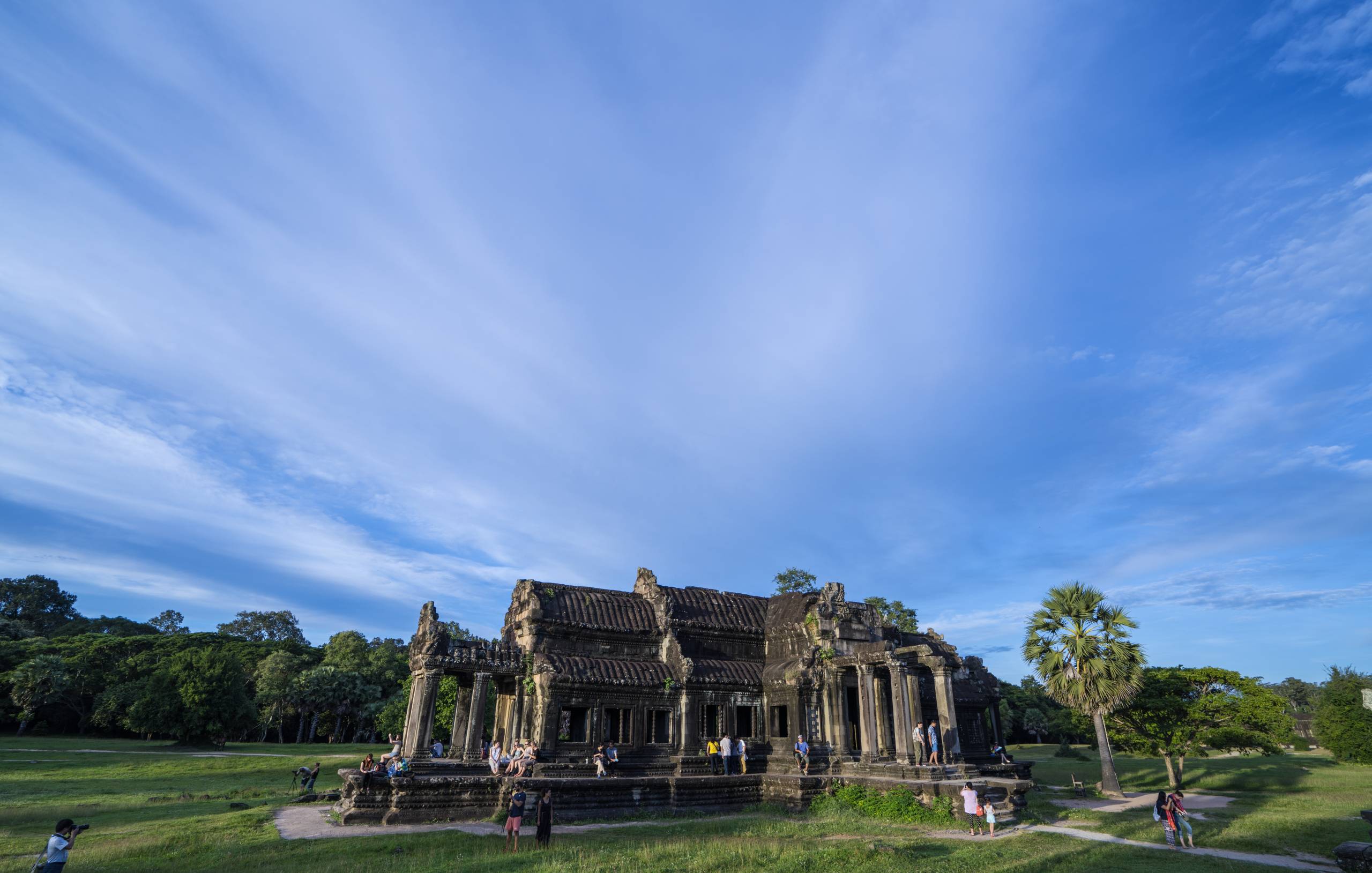
Discover the grandeur of Angkor Wat temple, one of the most iconic and awe-inspiring monuments in the world.
Architectural Design
Most visitors enter Angkor Wat via the western causeway, leading to grand terraces and a central temple structure with three levels. The complex features interconnected galleries, offering stunning panoramic views of the surrounding landscape.
Bas Reliefs
A significant draw for tourists, Angkor Wat’s intricate bas-reliefs feature stunning carvings depicting apsaras and historical narratives, such as the Battle of Kurukshetra and the Churning of the Ocean of Milk.
Tips for Visiting
- For a breathtaking sunrise, be patient and wait for the sun to rise over the moat.
- Dress aptly; light clothing covering shoulders and knees is a must.
- Consider visiting during lunch hours for a quieter experience.
Bayon Temple
Bayon Temple, located in Angkor Thom, showcases numerous serene faces with mysterious smiles. Hence, it is considered a must-visit destination for anyone in Siem Reap. Originally deemed “Jayagiri” or “Victory Mountain,” it was dedicated to Buddha.
Bayon is known for its restorative efforts, as over the years it has been granted a unique name due to historical mispronunciations. Today, it stands as an emblem of cultural richness and architectural intrigue.
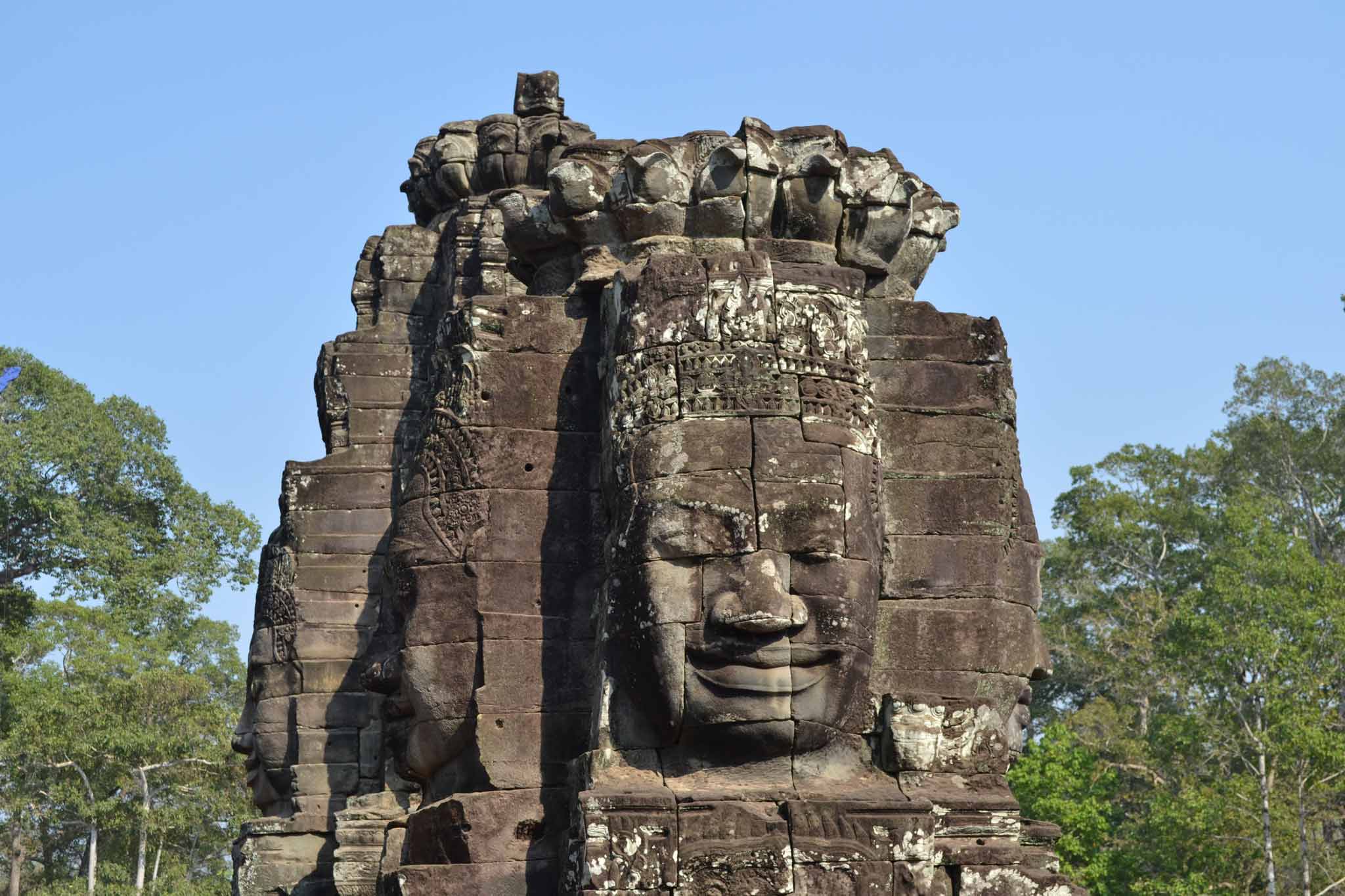
The serene stone faces of Bayon present one of the most iconic images within the Angkor Archaeological Park.
Why Visit Bayon?
Bayon is compact yet remarkably rich in historical context, boasting both serene faces and well-preserved bas-reliefs showcasing various historical events intertwined with daily life.
Location
Located in Angkor Thom, Bayon can be easily accessed and explored, offering shade and unique photo opportunities throughout your visit.
Ta Prohm
Famous for its role in the Tomb Raider movie, Ta Prohm has captured the imagination of many. More than its Hollywood fame, this temple features mesmerizing aesthetics, showcasing a captivating interplay between nature and architecture.
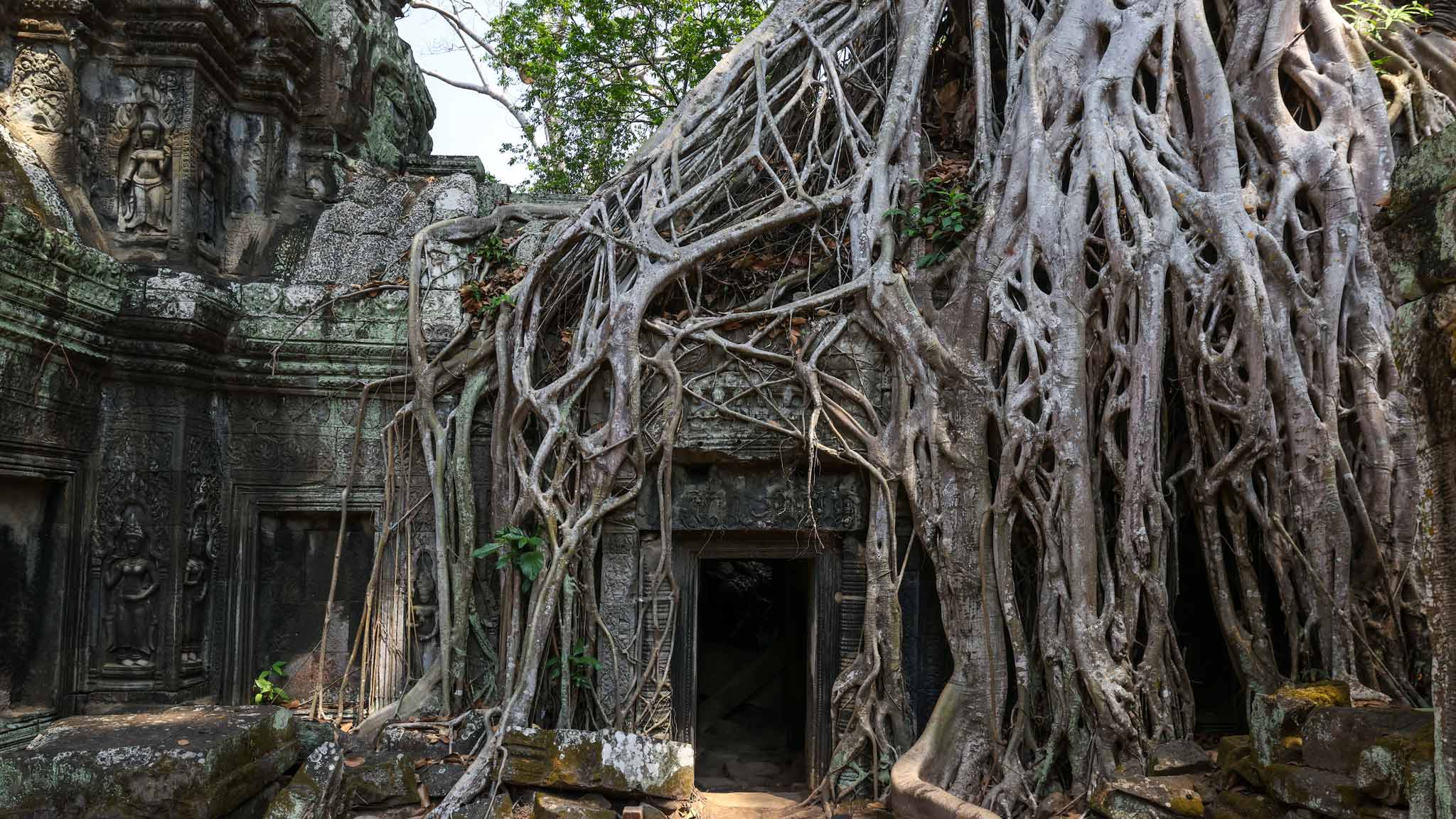
Visiting Ta Prohm
Ta Prohm is easily accessible from Angkor Wat and provides tranquility away from larger crowds. Early visits are recommended to experience its serene ambiance before the crowds arrive.
Banteay Srei
Banteay Srei, also known as the “Lady Temple,” stands apart from the grandeur of the main Angkor complex. Its intricate carvings and unique architecture encapsulate the artistic expression of the Khmer empire.
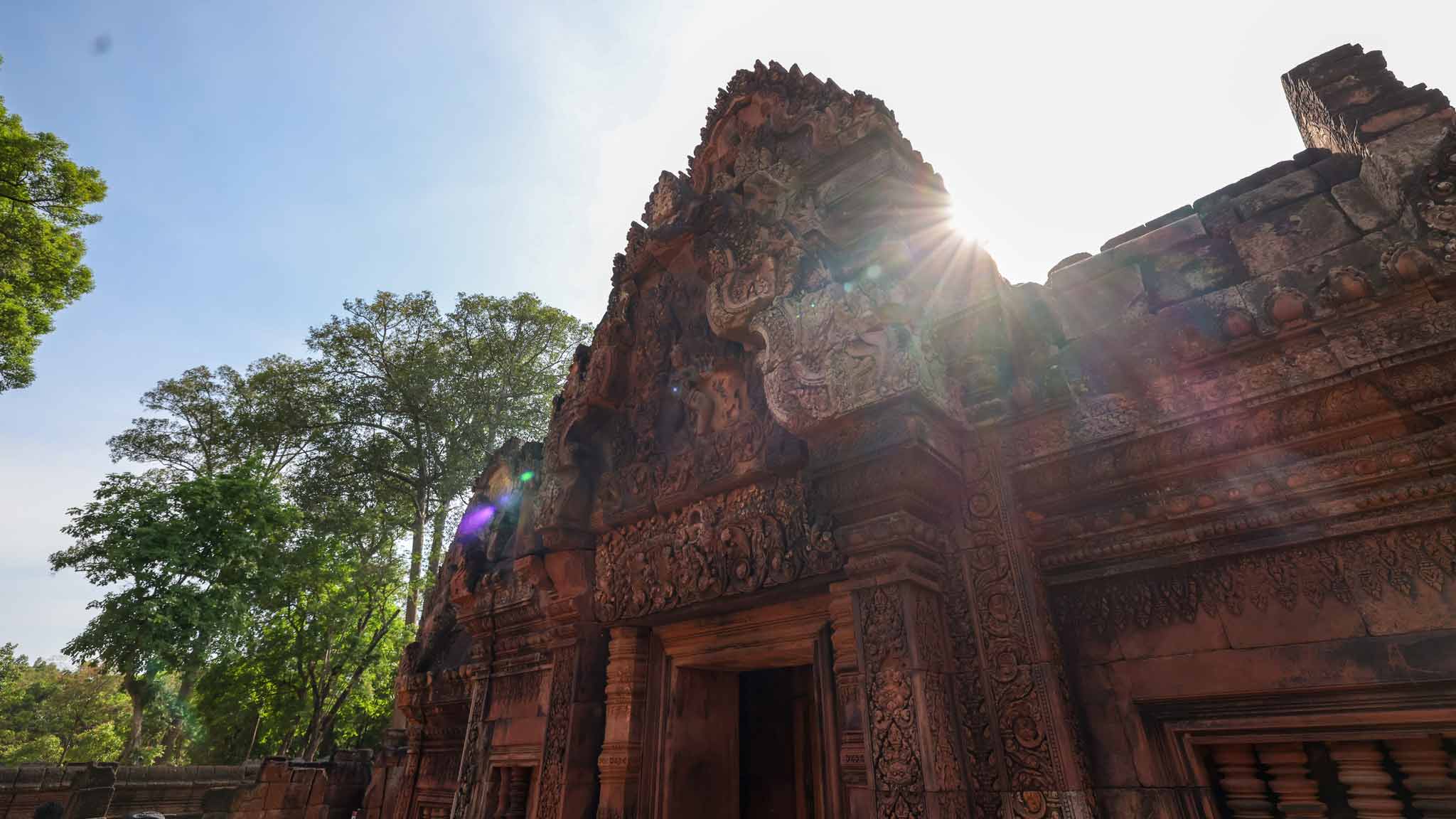
How to Get There
Banteay Srei is located about 20km from the main Angkor complex. A tuk-tuk ride or a bike ride through scenic villages is recommended.
Tonle Sap Lake
Tonle Sap Lake is vital for Cambodia’s economy, serving as a crucial resource for fishing and agriculture. The lake’s unique ecosystem and seasonal variations are significant attractions for visitors.
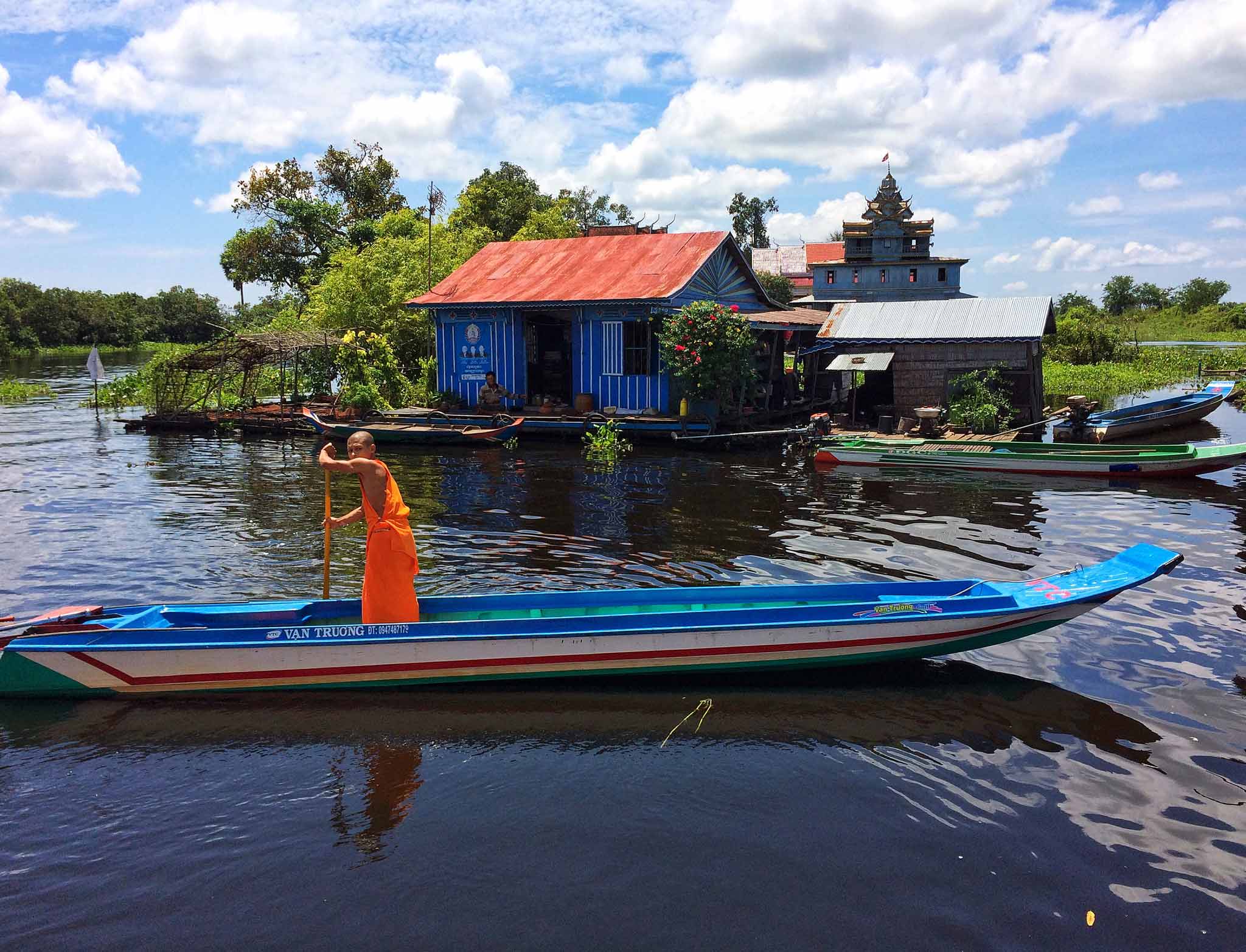
Biodiversity
Visitors can appreciate the rich biodiversity surrounding the area, including bird sanctuaries and unique species that call the lake home.
Beng Mealea
Beng Mealea, often referred to as the “Jungle Temple,” offers a glimpse into what the temples may have looked like before restoration efforts. This site provides a sense of adventure for those who explore its jungle-covered ruins.
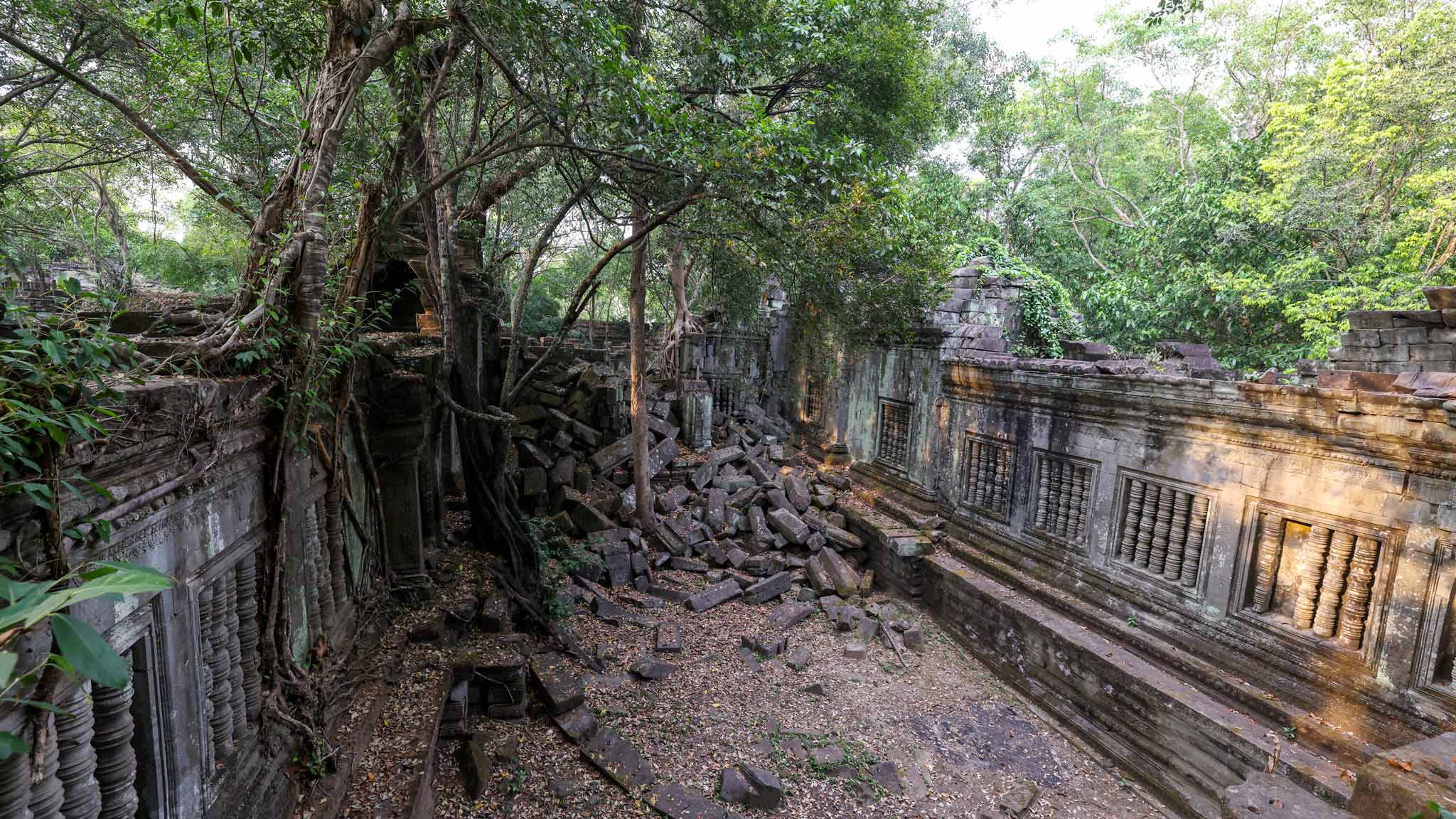
Location
Located 70 km from Siem Reap, accessing Beng Mealea can be facilitated via private taxi or tuk-tuk, ensuring a comfortable journey through beautiful Cambodian landscapes.
Roluos Group
The Roluos Group consists of four temples, showcasing the Khmer Empire’s early architectural styles. Situated just 12 km east of Siem Reap, these temples are remnants of the original capital, Hariharalaya.
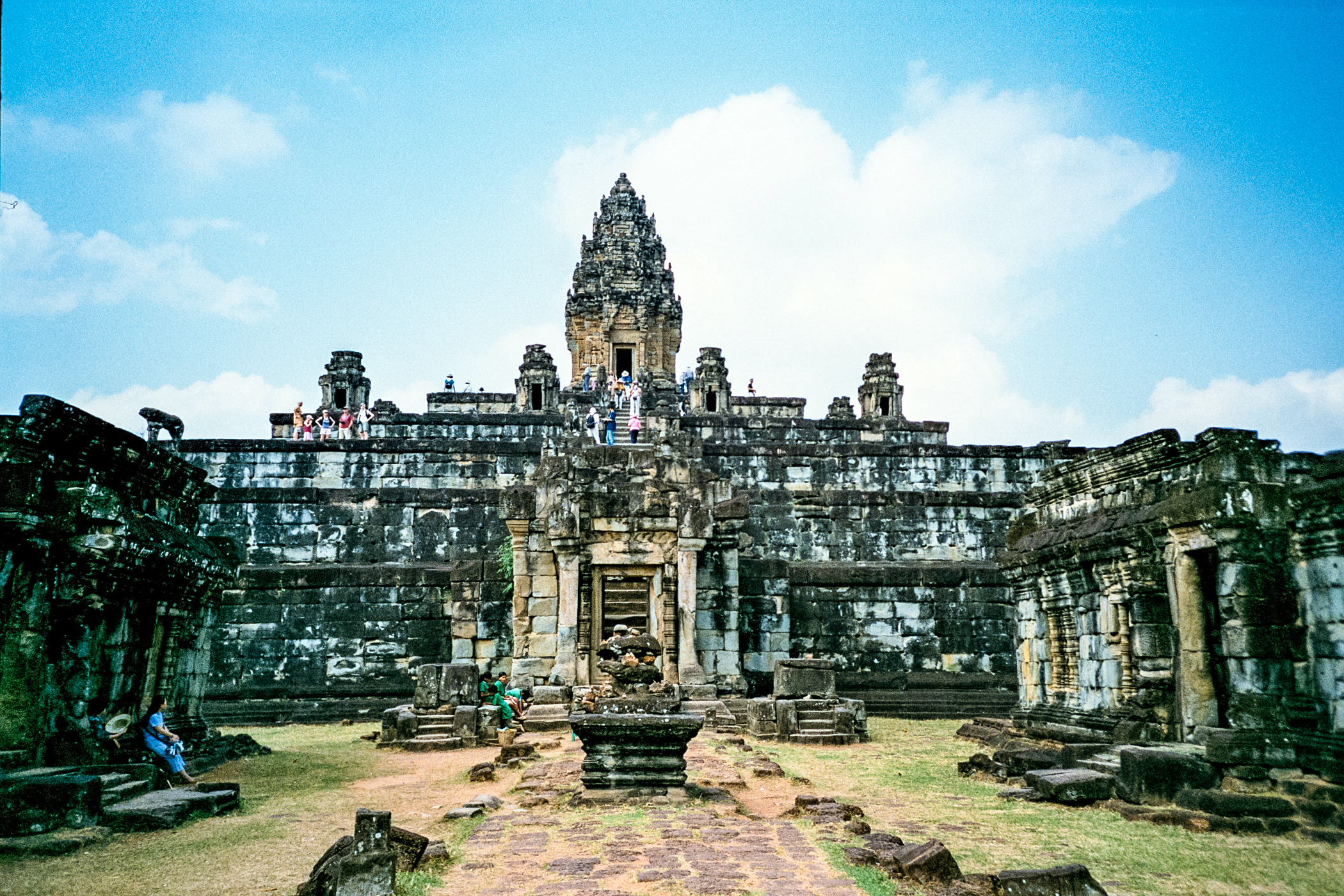
Visiting Roluos
A visit to the Roluos Group is often less crowded compared to the main temple complex and offers a unique insight into the history of the Khmer Empire.
Pre Rup
Pre Rup, built in the 10th century, serves as a symbolic representation of the resurrection and is a notable architectural marvel in the Angkor complex.
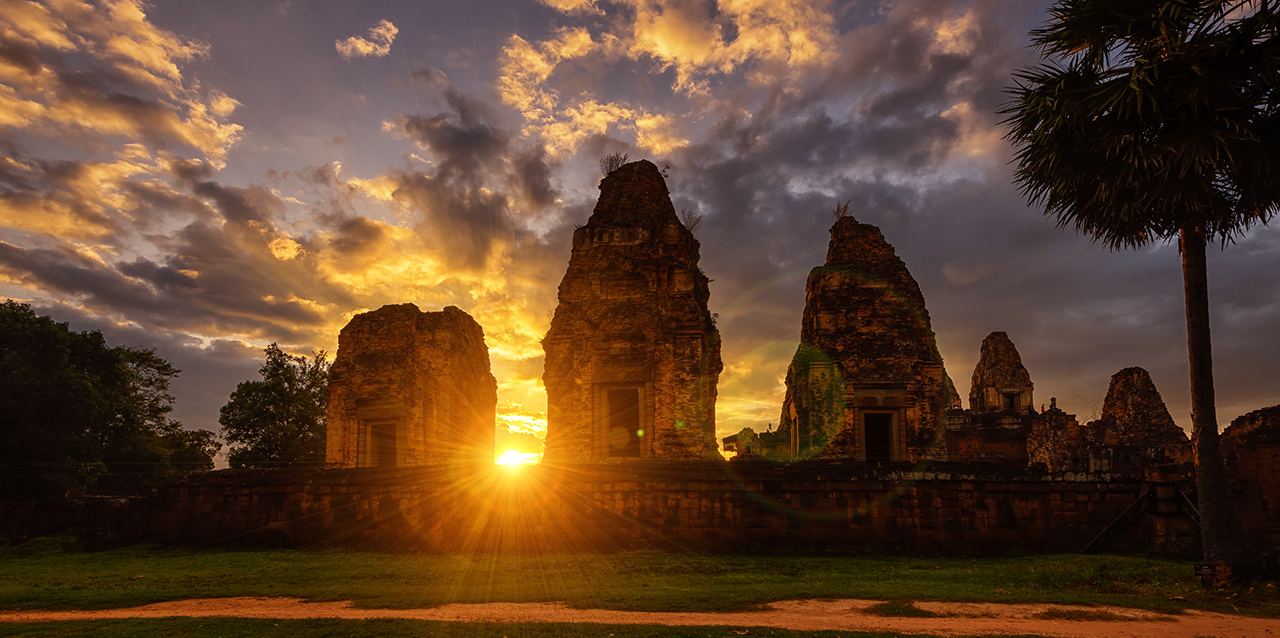
Accessing Pre Rup
The southeast corner of the temple serves as the main entrance, and a valid Temple Pass is required for entry, which is typically available through various tour options.
Phnom Bakheng
Phnom Bakheng is one of the oldest temples within the Angkor region, famous for its spectacular views, particularly at sunset.
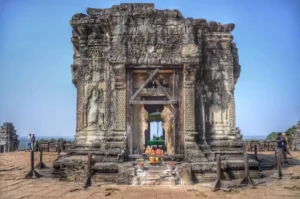
Getting to Phnom Bakheng
Visitors are encouraged to arrive early to enjoy the sights without large crowds and comfortably explore its steep climbs.
Koh Ker
Koh Ker served as the capital of the Khmer Empire during the reigns of Jayavarman IV and Harshavarman II. The remnants of its impressive structures, including a towering pyramid, entice many adventurous visitors.
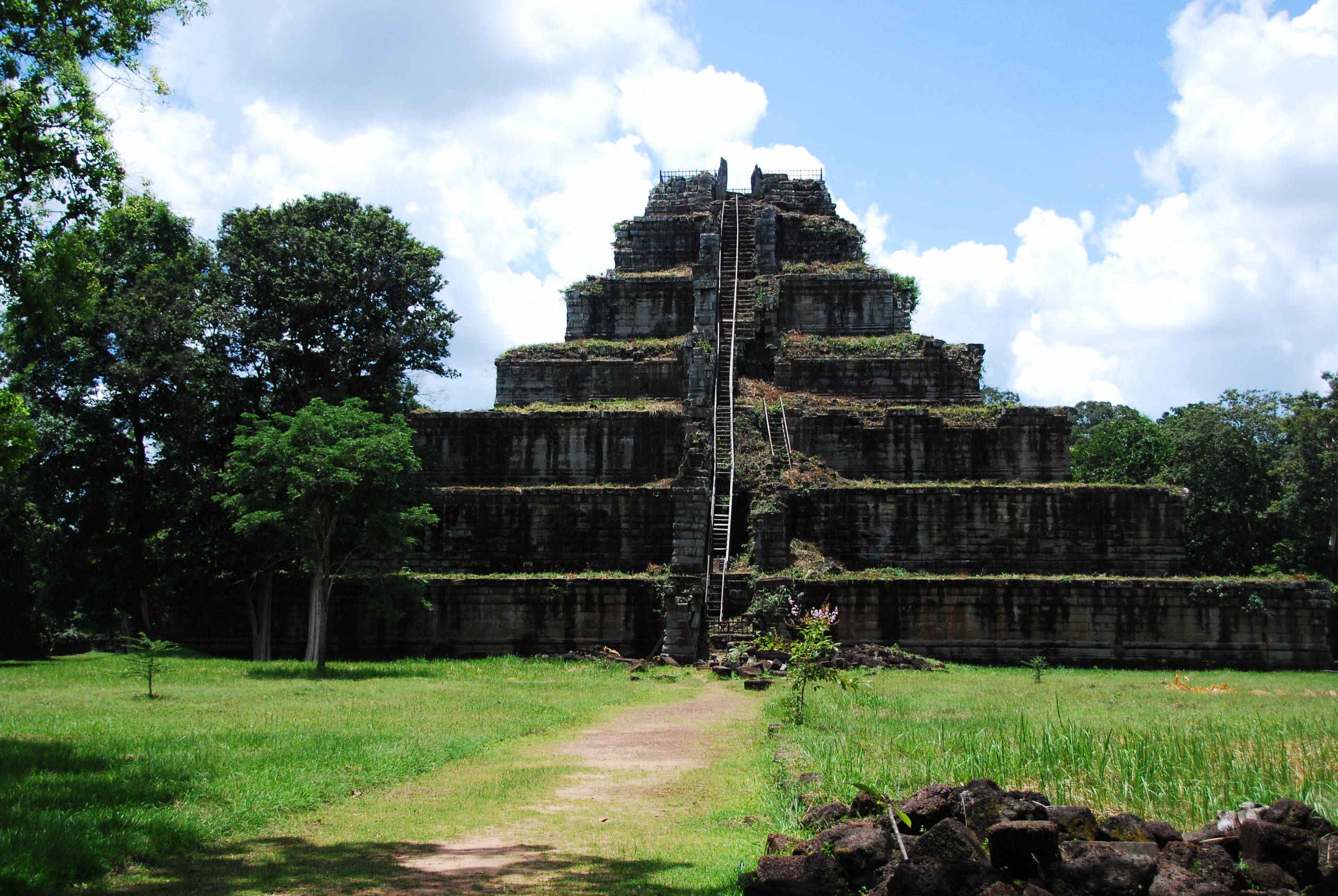
Visiting Koh Ker
The journey from Siem Reap to Koh Ker typically takes around 2.5 hours, but visitors will be rewarded with the tranquility and unique archaeological experience that this lesser-known site offers.
Srah Srang
As a historical reservoir, Srah Srang is the perfect place to experience Cambodia’s natural beauty while indulging in the atmosphere of serenity.
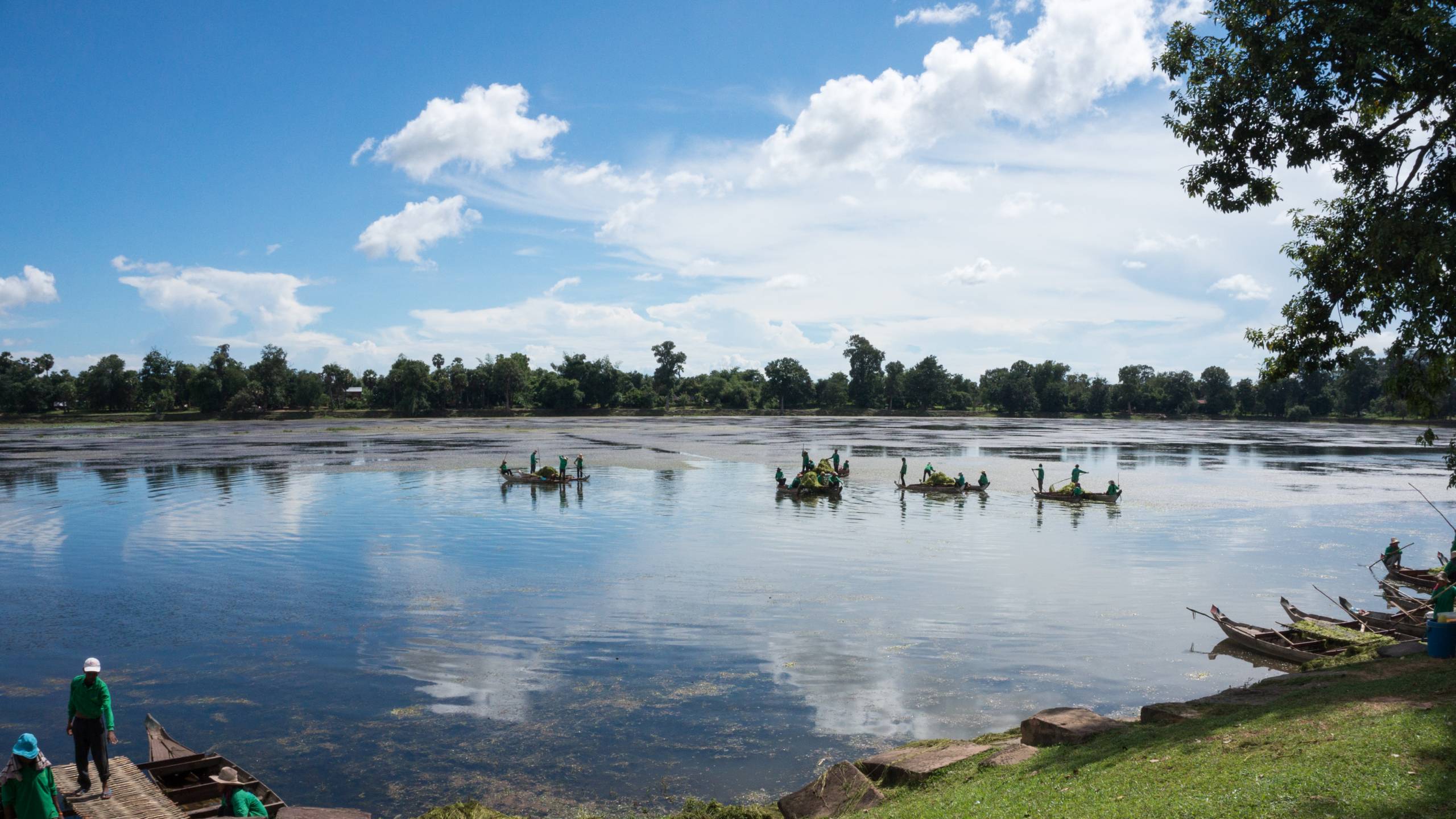
Exploring Srah Srang
Whether you choose to visit at sunrise or sunset, Srah Srang offers stunning panoramas and a peaceful retreat while exploring its history.
Banteay Kdei
Banteay Kdei’s ruins present a maze of chambers and corridors that create a delightful exploration experience away from the larger crowds of Angkor.
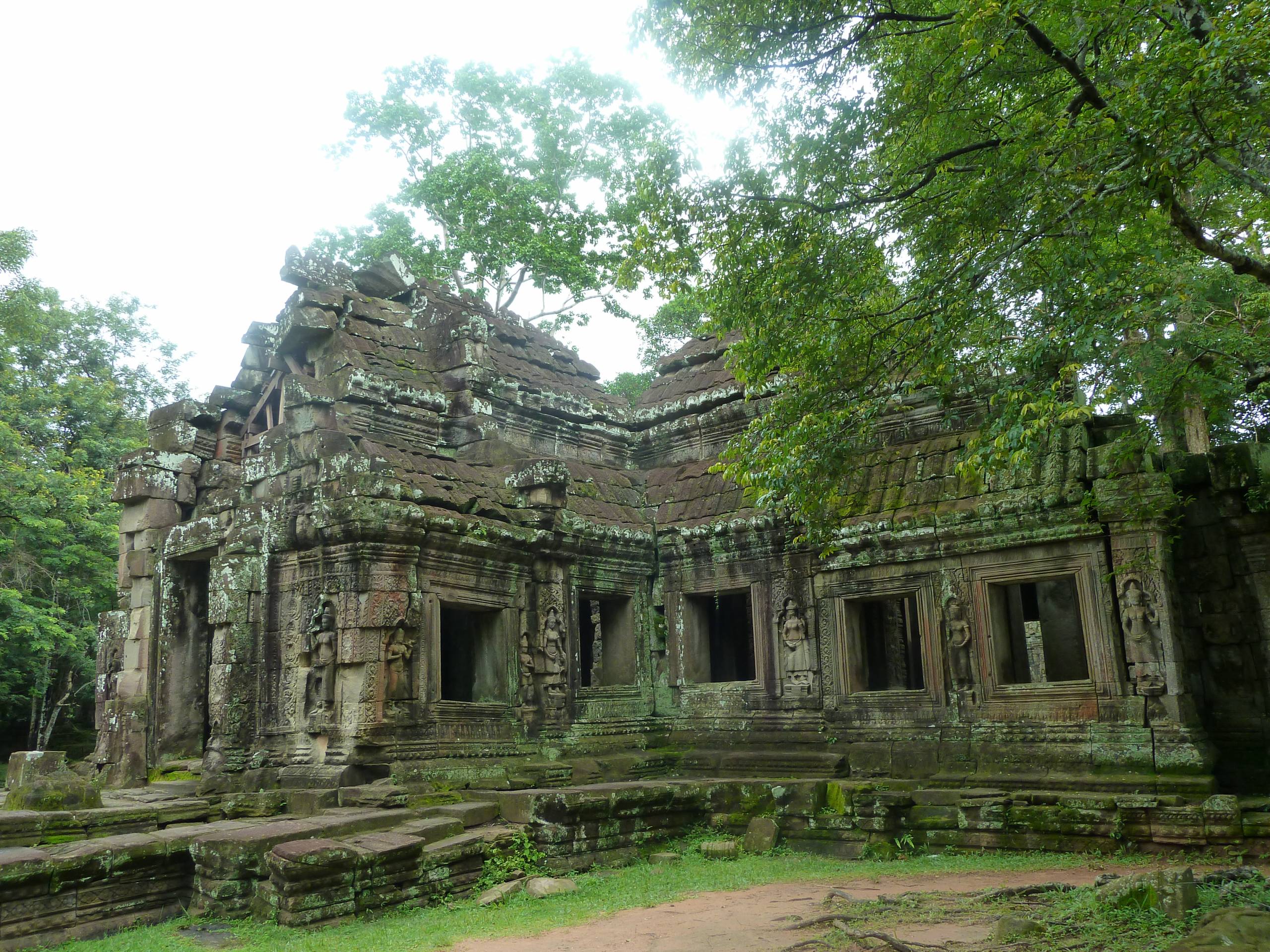
Why Visit Banteay Kdei?
Banteay Kdei offers a quiet alternative to the frequently crowded sites, making it an ideal spot to witness sunrise or explore tranquil corners rich in history.
Pub Street
Experience the vibrant nightlife of Siem Reap along Pub Street, the party hub of Cambodia, known for its lively atmosphere and local culinary adventures.
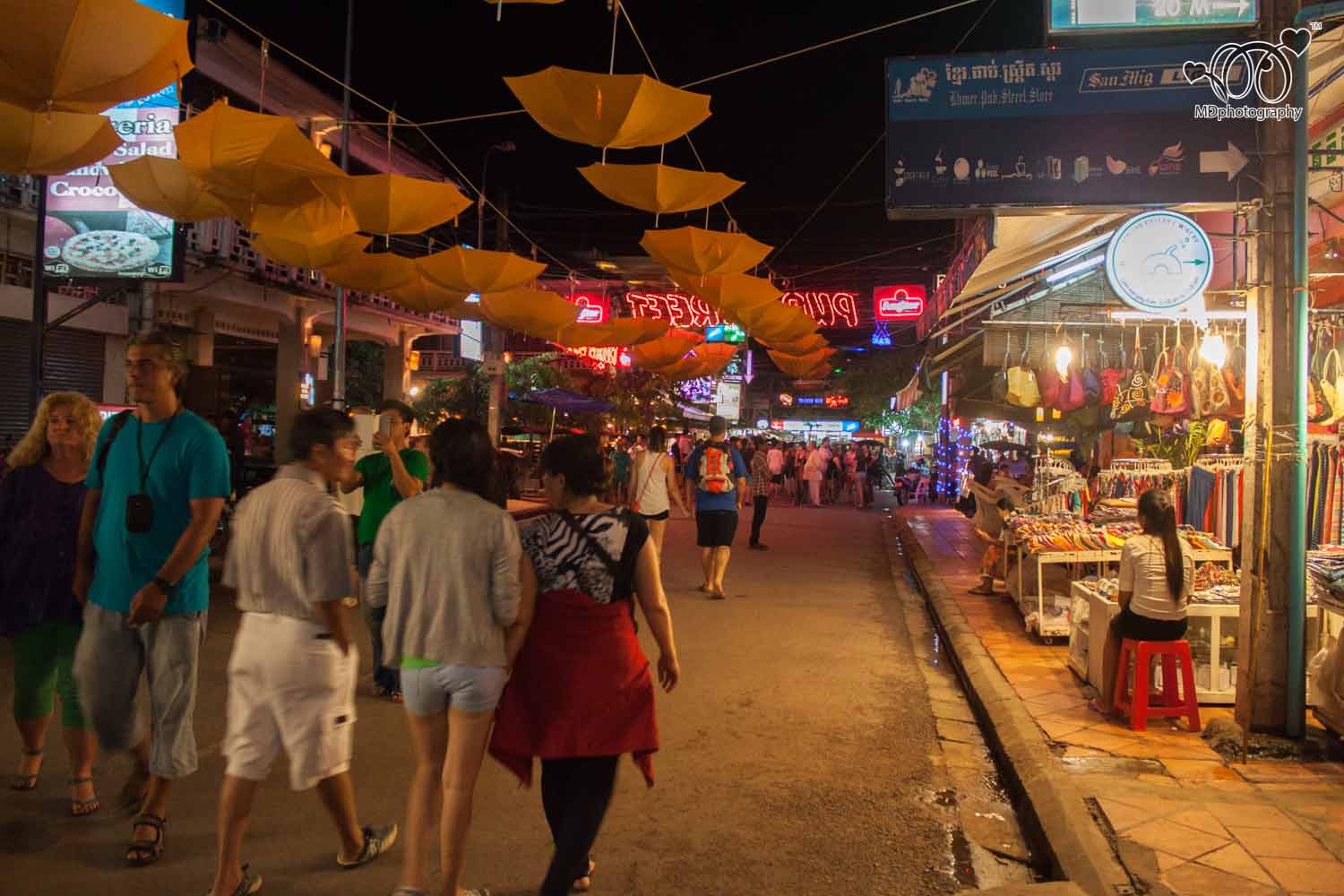
Local Tips
While enjoying Pub Street, be sure to remain aware of your surroundings and take common precautions against scams. Always negotiate tuk-tuk fares beforehand and resist the temptation to engage with aggressive street vendors.
Key Takeaways
Siem Reap boasts a plethora of attractions ranging from historical temples and natural landscapes to dynamic nightlife. Among the experiences not to miss include the majestic Angkor Wat, the floating village of Kampong Phluk, and the serene Tonle Sap Lake.
Top Attractions in Siem Reap
Discover these unforgettable places in Siem Reap:
- Angkor Wat: Explore the world’s largest religious monument.
- Angkor Thom & Bayon Temple: Step back in time and witness the grandeur of Bayon Temple.
- Ta Prohm Temple: Experience the fusion of nature with architecture.
- Banteay Srei: Admire the stunning pink sandstone carvings.
- Tonle Sap Lake: Visit the vibrant floating villages.
- Angkor National Museum: Delve into the rich history of the region.
- Pub Street: Enjoy the vibrant nightlife scene.
- Khmer Cooking Class: Learn to cook authentic Khmer dishes.
- Angkor Silk Farm: Discover the art of silk-making.
Travel Tips Before Visiting Siem Reap
Ensure you have a valid visa. The best time to visit is between November and April due to favorable weather conditions. Dress respectfully when visiting temples and be cautious with your belongings.




